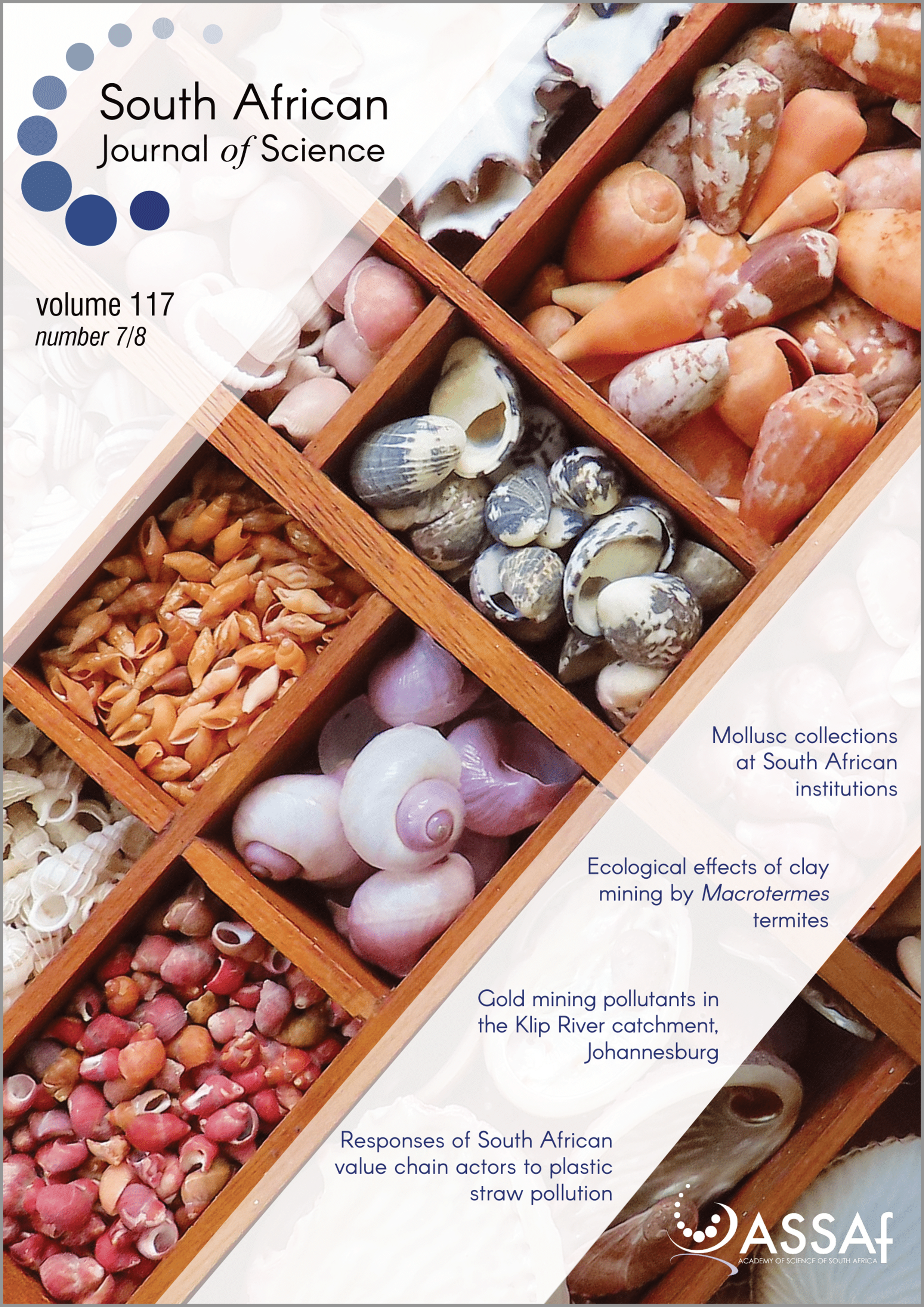Phytosanitary risk associated with illegal importation of pest-infested commodities to the South African agricultural sector
DOI:
https://doi.org/10.17159/sajs.2021/8675Keywords:
food security, fresh fruit, grains, interception, pests, quarantineAbstract
We evaluated the phytosanitary risk associated with illegal importation of pest-infested plant commodities into South Africa. Samples were collected from different South African ports of entry over 8 years (2011 to 2019) and data were analysed descriptively using Statistical Software Package. Pests were frequently detected on commodity species such as Citrus (18.31%), Zea mays (13.22%), Phaseolus vulgaris (12.88%), Musa spp. (9.15%) and Fragaria ananassa (5.08%). The highest number of pests intercepted occurred on fresh fruits (44.06%), followed by grains (26.44%) and vegetables (14.23%). The most intercepted organisms were Callosobruchus rhodesianus (7.79%), Dysmicoccus brevipes (7.11%), Callosobruchus maculates (6.10%) and Phyllosticta citricarpa (4.74%). The majority of intercepted organisms were non-quarantine organisms (70.50%), followed by pests of unknown status (17.28%), quarantine pests (10.84%) and potential quarantine pests (1.35%). Phyllosticta citricarpa, Bactrocera dorsalis, Spodoptera frugiperda and Prostephanus truncatus were the only quarantine pests intercepted in terms of South African regulatory status. The interception was mainly from southern African countries, particularly Mozambique, Zimbabwe and Eswatini. The findings present the level of phytosanitary risk associated with illegal importation and/or non-compliance in regard to plants and plant commodities from different countries through South African ports of entry. Crop production, biodiversity, food security, existing export markets, and access to new export markets could be threatened as importing countries may impose stringent phytosanitary measures to limit the chances of introduction and establishment of quarantine pests into their territories.
Significance
- Illegal importation of plant commodities may lead to the introduction, establishment and spread of pests that are of quarantine significance to South Africa.
- Introduction of pest species such as Phyllosticta citricarpa, Bactrocera dorsalis, Spodoptera frugiperda and Prostephanus truncatus into South Africa could result in undesirable impacts on the ecosystem, agriculture, biodiversity and economy of the country.
- Access to new export markets of plant commodities could be threatened as importing countries may impose stringent phytosanitary measures to limit the chances of introduction and establishment of these quarantine pests into their territories.
Published
Issue
Section
License

All articles are published under a Creative Commons Attribution 4.0 International Licence
Copyright is retained by the authors. Readers are welcome to reproduce, share and adapt the content without permission provided the source is attributed.
Disclaimer: The publisher and editors accept no responsibility for statements made by the authors
How to Cite
- Abstract 949
- PDF 935
- EPUB 167
- XML 198












.png)